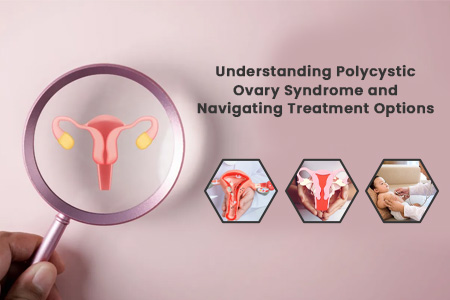
 2024-02-16
2024-02-16
Polycystic Ovary Syndrome (PCOS), also known as Polycystic Ovary Disorder (PCOD), is a common hormonal disorder affecting individuals of reproductive age, particularly women. PCOS is characterized by a variety of symptoms and hormonal imbalances, which can have significant implications for reproductive health, metabolic function, and overall well-being. Understanding the causes, symptoms, and management strategies for PCOS is essential in empowering individuals to effectively navigate this complex condition.
PCOS is a heterogeneous disorder characterized by a combination of hormonal imbalances, ovarian dysfunction, and metabolic disturbances. While the exact cause of PCOS remains unclear, it is believed to involve a complex interplay of genetic, environmental, and lifestyle factors.
Key features of PCOS include:
1. Irregular menstrual cycles: Women with PCOS often experience irregular or absent menstrual periods due to disruptions in ovulation.
2. Hyperandrogenism: Elevated levels of androgens (male hormones) such as testosterone may lead to symptoms such as hirsutism (excess facial or body hair), acne, and male-pattern baldness.
3. Polycystic ovaries: On ultrasound examination, the ovaries may appear enlarged and contain multiple small follicles, giving them a characteristic appearance described as "polycystic."
4. Metabolic abnormalities: Individuals with PCOS are at increased risk of insulin resistance, obesity, type 2 diabetes, and dyslipidemia (abnormal lipid levels).
Symptoms of PCOS can vary widely among individuals and may include menstrual irregularities, hirsutism, acne, infertility, weight gain, and mood disturbances.
Management and Treatment of PCOS:
The management of PCOS focuses on alleviating symptoms, reducing the risk of complications, and improving overall health outcomes. Treatment strategies for PCOS may include:
1. Lifestyle modifications: Adopting a healthy lifestyle, including regular exercise, balanced diet, weight management, and stress reduction techniques, can help improve insulin sensitivity, regulate menstrual cycles, and reduce symptoms of PCOS.
2. Medications: Depending on the individual's symptoms and specific needs, medications may be prescribed to address hormonal imbalances, regulate menstrual cycles, and manage associated conditions such as acne or hirsutism. Commonly prescribed medications include oral contraceptives, anti-androgen medications, insulin-sensitizing agents (e.g., metformin), and ovulation-inducing medications (e.g., clomiphene citrate).
3. Fertility treatments: For individuals struggling with infertility due to PCOS-related ovulatory dysfunction, fertility treatments such as ovulation induction, intrauterine insemination (IUI), or in vitro fertilization (IVF) may be recommended.
4. Management of metabolic complications: Close monitoring and management of metabolic abnormalities such as insulin resistance, obesity, and dyslipidemia are essential in reducing the risk of long-term complications such as type 2 diabetes and cardiovascular disease.
Promoting Prasidh Hospital's Expert Care:
Prasidh Hospital is committed to providing comprehensive care and support to individuals affected by PCOS. With a multidisciplinary team of gynecologists, endocrinologists, dietitians, and fertility specialists, Prasidh Hospital offers personalized treatment plans tailored to each patient's unique needs and goals.
At Prasidh Hospital, individuals with PCOS benefit from state-of-the-art diagnostic facilities, including hormonal testing, ultrasound imaging, and metabolic assessments, allowing for accurate diagnosis and targeted management. Treatment at Prasidh Hospital emphasizes a holistic approach, addressing not only the hormonal and reproductive aspects of PCOS but also the metabolic and psychological components. Through a combination of lifestyle modifications, medications, fertility treatments, and supportive care, Prasidh Hospital strives to empower individuals with PCOS to achieve optimal health and well-being.
Polycystic Ovary Syndrome (PCOS) is a complex hormonal disorder with diverse manifestations and implications for reproductive and metabolic health. By understanding the causes, symptoms, and management strategies for PCOS, individuals can take proactive steps to manage their condition effectively and improve their quality of life. Prasidh Hospital stands as a beacon of hope and support for individuals affected by PCOS, offering expert care, personalized treatment plans, and compassionate support to navigate the challenges of this condition and achieve better health outcomes.
 What’s Causing That Itchy Feeling in Your Ears? 2024-09-21 by : Prasidh Hospitals
What’s Causing That Itchy Feeling in Your Ears? 2024-09-21 by : Prasidh Hospitals
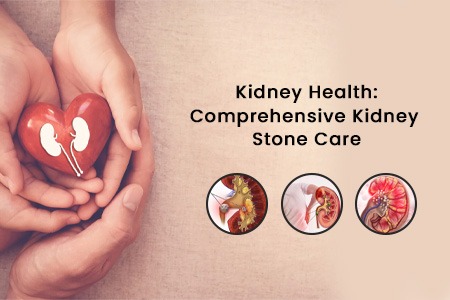 Kidney Health Comprehensive Kidney Stone Care 2024-09-20 by : Prasidh Hospitals
Kidney Health Comprehensive Kidney Stone Care 2024-09-20 by : Prasidh Hospitals
 How Has Varicose Veins Treatment Changed Over the Years? 2024-09-18 by : Prasidh Hospital
How Has Varicose Veins Treatment Changed Over the Years? 2024-09-18 by : Prasidh Hospital
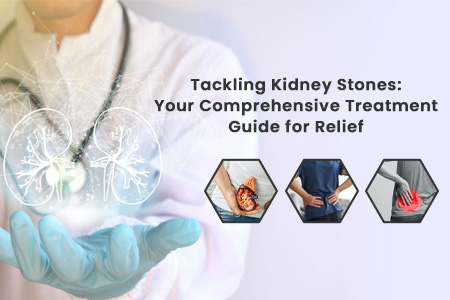 Tackling Kidney Stones Your Comprehensive Treatment Guide for Relief 2024-08-21 by : Prasidh Hospital
Tackling Kidney Stones Your Comprehensive Treatment Guide for Relief 2024-08-21 by : Prasidh Hospital
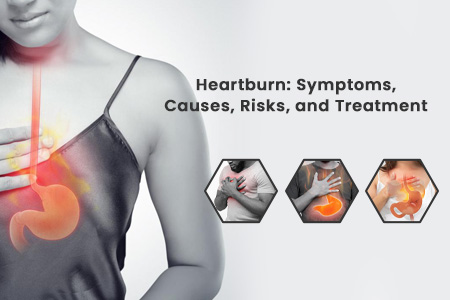 Heartburn Symptoms, Causes, Risks, and Treatment 2024-08-20 by : Prasidh Hospital
Heartburn Symptoms, Causes, Risks, and Treatment 2024-08-20 by : Prasidh Hospital
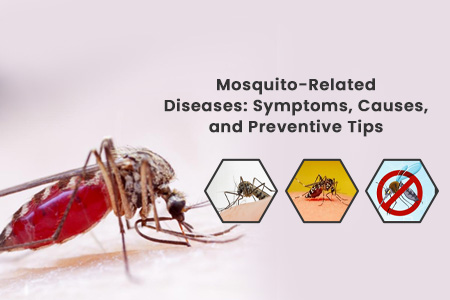 Mosquito-Related Diseases Symptoms, Causes, and Preventive Tips 2024-08-16 by : Prasidh Hospital
Mosquito-Related Diseases Symptoms, Causes, and Preventive Tips 2024-08-16 by : Prasidh Hospital
 Understanding ADHD in Children Signs, Symptoms, and Treatment 2024-07-11 by : Prasidh Hospitals -
Understanding ADHD in Children Signs, Symptoms, and Treatment 2024-07-11 by : Prasidh Hospitals -
 Pregnancy Planning Preparing for a Healthy Pregnancy 2024-07-11 by : Prasidh Hospitals -
Pregnancy Planning Preparing for a Healthy Pregnancy 2024-07-11 by : Prasidh Hospitals -
 Understanding High Blood Pressure Causes, Risks, and Management 2024-07-11 by : Prasidh Hospitals -
Understanding High Blood Pressure Causes, Risks, and Management 2024-07-11 by : Prasidh Hospitals -
 Understanding Hormonal Imbalances Causes, Symptoms, and Treatments for a Balanced Life 2024-05-27 by : Prasidh Hospital
Understanding Hormonal Imbalances Causes, Symptoms, and Treatments for a Balanced Life 2024-05-27 by : Prasidh Hospital
 Navigating Orthopaedic Surgery Procedures, Recovery, and Benefits 2024-05-25 by : Prasidh Hospital
Navigating Orthopaedic Surgery Procedures, Recovery, and Benefits 2024-05-25 by : Prasidh Hospital
 Boosting Your Child's Immune System Paediatric Advice for a Healthy Future 2024-05-24 by : Prasidh Hospital
Boosting Your Child's Immune System Paediatric Advice for a Healthy Future 2024-05-24 by : Prasidh Hospital
 Joint Replacement Surgery: What to Expect and How to Prepare 2024-04-12 by : Prasidh Hospital
Joint Replacement Surgery: What to Expect and How to Prepare 2024-04-12 by : Prasidh Hospital
 The Vital Importance of Regular Gynecologist Check-ups for Women's Health 2024-03-06 by : Prasidh Hospital
The Vital Importance of Regular Gynecologist Check-ups for Women's Health 2024-03-06 by : Prasidh Hospital
 The Lifesaving Role of Neonatal Intensive Care Units (NICUs) for Premature Babies 2024-03-07 by : Prasidh Hospital
The Lifesaving Role of Neonatal Intensive Care Units (NICUs) for Premature Babies 2024-03-07 by : Prasidh Hospital
 A Comprehensive Guide to Joint Replacement Surgery Preparing for the Journey Ahead 2024-03-04 by : Prasidh Hospital
A Comprehensive Guide to Joint Replacement Surgery Preparing for the Journey Ahead 2024-03-04 by : Prasidh Hospital
 Breaking Down Osteoporosis Maintaining Bone Health 2024-02-16 by : Prasidh Hospital
Breaking Down Osteoporosis Maintaining Bone Health 2024-02-16 by : Prasidh Hospital
 Understanding Polycystic Ovary Syndrome and Navigating Treatment Options 2024-02-16 by : Prasidh Hospital
Understanding Polycystic Ovary Syndrome and Navigating Treatment Options 2024-02-16 by : Prasidh Hospital
 Protecting Precious Lives Neonatal Pneumonia and Promoting Prasidh Hospital's Expert Care 2024-02-09 by : Prasidh Hospital
Protecting Precious Lives Neonatal Pneumonia and Promoting Prasidh Hospital's Expert Care 2024-02-09 by : Prasidh Hospital
 Rediscovering Sound A Journey through Hearing Loss Solutions at Prasidh Hospital 2024-01-29 by : Prasidh Hospital
Rediscovering Sound A Journey through Hearing Loss Solutions at Prasidh Hospital 2024-01-29 by : Prasidh Hospital
 Unveiling Solutions for PCOS Prasidh Hospitals Holistic Approach to Womens Health 2024-01-25 by : Prasidh Hospital
Unveiling Solutions for PCOS Prasidh Hospitals Holistic Approach to Womens Health 2024-01-25 by : Prasidh Hospital
 Challenges of ADHD Prasidh Hospital's Comprehensive Approach to Care 2024-01-24 by : Prasidh Hospital
Challenges of ADHD Prasidh Hospital's Comprehensive Approach to Care 2024-01-24 by : Prasidh Hospital
 Understanding Acid Peptic Disease Symptoms, Causes, and Treatment 2023-12-29 by : Prasidh Hospital
Understanding Acid Peptic Disease Symptoms, Causes, and Treatment 2023-12-29 by : Prasidh Hospital
 Nurturing Healthy Appetites A Guide to Improving Your Child's Eating Habits 2023-12-27 by : Prasidh Hospital
Nurturing Healthy Appetites A Guide to Improving Your Child's Eating Habits 2023-12-27 by : Prasidh Hospital
 Nourishing Pregnancy Foods to Avoid for a Healthy Journey 2023-12-20 by : Prasidh Hospital
Nourishing Pregnancy Foods to Avoid for a Healthy Journey 2023-12-20 by : Prasidh Hospital
 Identify the Symptoms of Allergy and Asthma A Comprehensive Guide 2023-12-13 by : Prasidh Hospital
Identify the Symptoms of Allergy and Asthma A Comprehensive Guide 2023-12-13 by : Prasidh Hospital
 Hyderabad's Solution to Dry Mouth Problems Expert Care 2023-11-28 by : Prasidh Hospital
Hyderabad's Solution to Dry Mouth Problems Expert Care 2023-11-28 by : Prasidh Hospital
 Strengthening Your Foundation: Osteoporosis Safety and Prevention Tips 2023-11-15 by : Prasidh Hospital
Strengthening Your Foundation: Osteoporosis Safety and Prevention Tips 2023-11-15 by : Prasidh Hospital
 Maximizing Your Chances of a Normal Delivery: Tips for a Healthy Pregnancy 2023-11-07 by : Prasidh Hospital
Maximizing Your Chances of a Normal Delivery: Tips for a Healthy Pregnancy 2023-11-07 by : Prasidh Hospital
 Laparoscopic surgery 2023-07-04 by : prasidhhospitals
Laparoscopic surgery 2023-07-04 by : prasidhhospitals
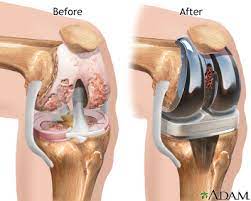 How to Manage Pain Swelling 2022-07-23 by : admin
How to Manage Pain Swelling 2022-07-23 by : admin
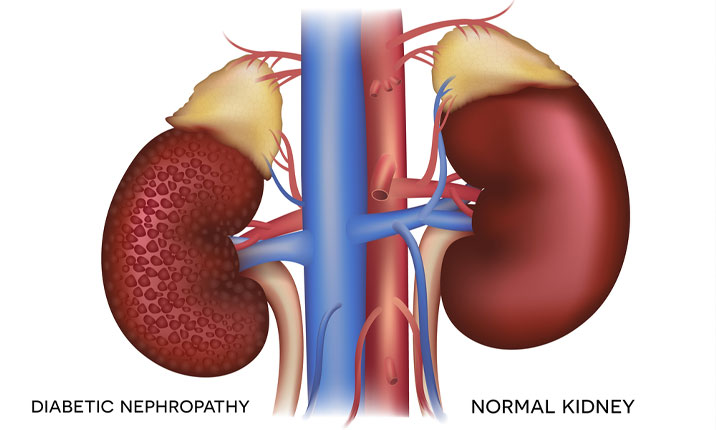 kidney health and diasbetes 2022-07-23 by : Admin
kidney health and diasbetes 2022-07-23 by : Admin
 how to increase the chances of normal delivery? 2022-07-23 by : admin
how to increase the chances of normal delivery? 2022-07-23 by : admin
Copyright © Prasidh rights reserved.